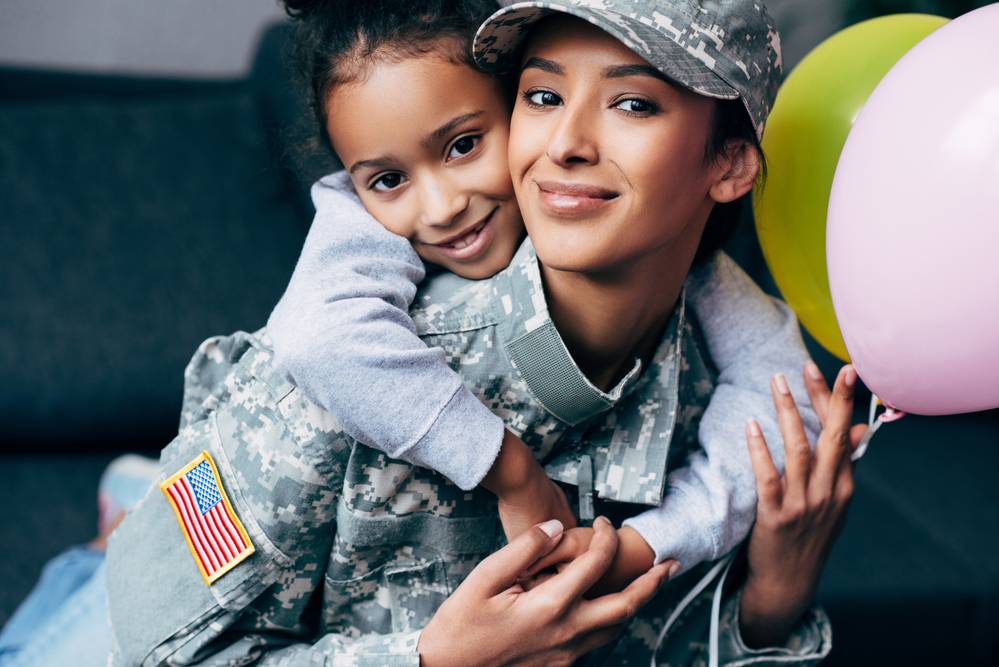Transitioning from military to civilian life can present unique challenges for female veterans. These incredible women learn life skills like resilience, determination, and leadership yet struggle to find mentorship, career development opportunities, or a community outside the military. Let’s explore how you can support them during this critical phase of their lives, discuss the importance of veteran mental health, and provide an example of one of many success stories.
Introducing Siobhan Cunningham: A Trailblazing Female Veteran Leader
To truly understand the experiences of female veteran leaders, we must acknowledge the remarkable individuals who have successfully made the transition. One such influential figure is Siobhan Cunningham, an inspiring veteran who dedicated her life to breaking barriers and empowering women in the military.
Siobhan enrolled in the military at 18 and quickly distinguished herself as a natural leader. She served with distinction for over a decade, rising through the ranks and earning numerous commendations for her exceptional performance. Throughout her career, Siobhan demonstrated a passion for helping and mentoring other women in the military, which led her to advocate for female veteran leaders in the civilian world.
She is now the host of the podcast, “Armed with Ambition,” a licensed clinical therapist with 20 years of trauma therapy experience, a bestselling author, and a mother. Plus, Siobhan offers a free guide on how to start a business for other female veterans. Her success is just one of many examples of these amazing women. Now, let’s look into how you can support women like Siobhan in their transition.
Supporting Female Veteran’s Transition into Civilian Life
Transitioning from military to civilian life can be a daunting prospect for anyone, but the challenges faced by female veterans can be particularly complex. It is crucial to create a robust framework of support. Here are some effective ways corporations and supporters can contribute to their successful transition:
1. Mentorship Programs
Establishing mentorship programs specifically designed for female veteran leaders can be immensely beneficial. By pairing them with experienced professionals who have successfully transitioned into civilian careers, they can gain guidance and valuable insights from those with similar experiences.
2. Networking Opportunities
Facilitating networking events and platforms where female veteran leaders can connect with other professionals, potential employers, and organizations can open doors to employment opportunities. These can be local luncheons, brunches, book clubs, virtual speed networking, or other fun event.
3. Skills Training and Development
Offering specialized training and development programs tailored to the needs of women veterans can help bridge the gap between their military experience and civilian job requirements. Many already have the foundation to become great leaders and need a guiding hand to show them how to transfer those skills. Together, we can empower these women to succeed.
4. Awareness and Recognition
Recognizing their valuable contributions in professional spaces can help them get the visibility they need for their next opportunity. Whether you promote their new business to connect them with clients or celebrate their win at work, you can help them shine a light on their accomplishments.
Mental Health: A Vital Component of the Transition
The transition from military to civilian life can take a toll on the mental health of any veteran. Besides PTSD, civilian life can be lonely for those who left their longtime community. It is essential to prioritize mental well-being during this critical phase. Here are some key points to consider:
Access to Mental Health Services
There are resources supporting women with specific challenges faced by transitioning into civilian life, such as identity shifts, loss of purpose, and adjusting to new roles. Connecting or increasing awareness of these resources for women veterans can go a long way.
Peer Support
Establish support groups or buddy systems that connect female veteran leaders with a safe space to share experiences, seek guidance, and provide mutual support. Peer support is valuable in fostering resilience and reducing feelings of isolation.
By implementing mentorship programs, training initiatives, and mental health support systems, we can ensure these incredible women continue to thrive and make significant contributions in their chosen fields.
You can connect with women like Siobhan at the International Association of Women. IAW hosts weekly networking events, has local chapters across the U.S., and is ready to help at any step of your career or business.




